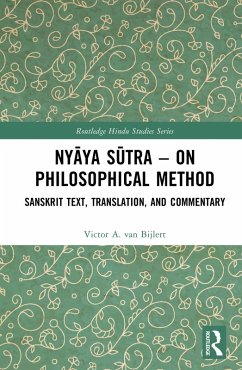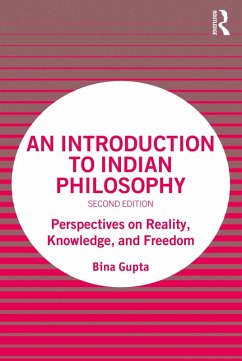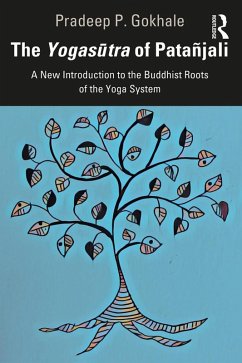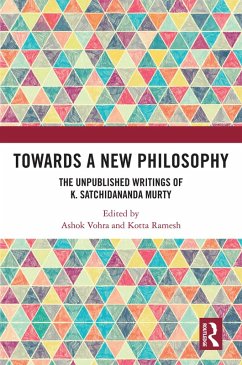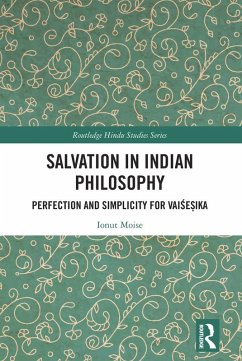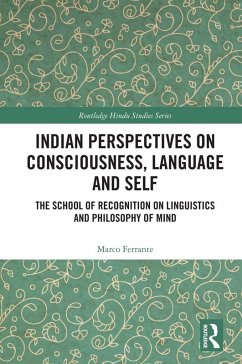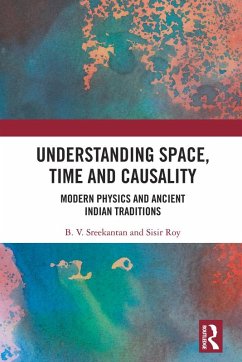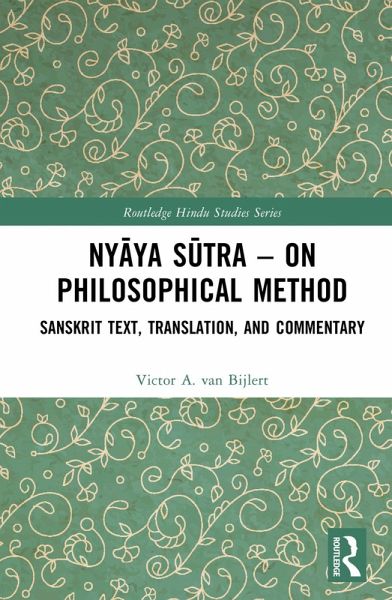
Nyaya Sutra - on Philosophical Method (eBook, PDF)
Sanskrit Text, Translation, and Commentary
Versandkostenfrei!
Sofort per Download lieferbar
42,95 €
inkl. MwSt.
Weitere Ausgaben:

PAYBACK Punkte
21 °P sammeln!
Nyaya Sutra offers a new English translation of the text ascribed to Ak¿apada, an Indian philosopher who lived around the beginning of the Common Era. The translation is accompanied by the original Sanskrit text and an original commentary.The commentary explains every sutra separately and identifies the sources of the Nyaya Sutra. It analyses the way older ideas on epistemology, logic, and soteriology were presented as a new coherent system of thought. The book puts forward the main goal of the Nyaya Sutra: to define what it considered the basic tenets of a soteriology and how the goal of thi...
Nyaya Sutra offers a new English translation of the text ascribed to Ak¿apada, an Indian philosopher who lived around the beginning of the Common Era. The translation is accompanied by the original Sanskrit text and an original commentary.
The commentary explains every sutra separately and identifies the sources of the Nyaya Sutra. It analyses the way older ideas on epistemology, logic, and soteriology were presented as a new coherent system of thought. The book puts forward the main goal of the Nyaya Sutra: to define what it considered the basic tenets of a soteriology and how the goal of this soteriology could be reached by rationally applying epistemological and logical methods to finding out the truth. In turn, this truth was thought to lead to the ultimate soteriological goal of freedom from suffering. Showing the coherence of the text and its ultimate goal being soteriological, the new commentary also discusses many scholarly issues regarding the Nyaya Sutra and its position in the history of Indian philosophy.
This book will be of interest to researchers studying Indian philosophy, world philosophies, epistemology, logic, philosophical method, art of debate, soteriology, rationalism, spirituality, Hinduism, Indian religions, and religious studies.
The commentary explains every sutra separately and identifies the sources of the Nyaya Sutra. It analyses the way older ideas on epistemology, logic, and soteriology were presented as a new coherent system of thought. The book puts forward the main goal of the Nyaya Sutra: to define what it considered the basic tenets of a soteriology and how the goal of this soteriology could be reached by rationally applying epistemological and logical methods to finding out the truth. In turn, this truth was thought to lead to the ultimate soteriological goal of freedom from suffering. Showing the coherence of the text and its ultimate goal being soteriological, the new commentary also discusses many scholarly issues regarding the Nyaya Sutra and its position in the history of Indian philosophy.
This book will be of interest to researchers studying Indian philosophy, world philosophies, epistemology, logic, philosophical method, art of debate, soteriology, rationalism, spirituality, Hinduism, Indian religions, and religious studies.
Dieser Download kann aus rechtlichen Gründen nur mit Rechnungsadresse in A, B, BG, CY, CZ, D, DK, EW, E, FIN, F, GR, HR, H, IRL, I, LT, L, LR, M, NL, PL, P, R, S, SLO, SK ausgeliefert werden.




